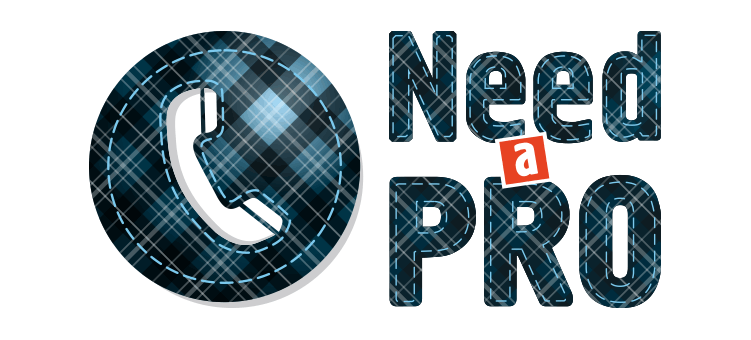Heart Attack Diagnosis and Treatment
Early treatment for a heart attack can limit damage to your heart.
Antiplatelet drugs, heart bypass surgery, and clot-busting medications are a few ways to treat a heart attack.
If you have symptoms of a heart attack, it’s essential to call for emergency medical care right away so that you can be evaluated and treated as soon as possible.
The treatments your doctor recommends will depend on the level of blockage in your coronary arteries and the extent of damage to your heart muscle.
Once a heart attack is confirmed or strongly suspected, your doctor may put you on medications to help unblock clogged arteries and restore blood flow to your heart.
You may also be given medications to prevent future clots or to reduce your heart’s workload.
Depending on the extent of blockage in your coronary arteries, you may also require a catheter-based or surgical procedure to open up a blocked artery or to create a new route for blood to reach your heart.
Tests Can Help Make a Diagnosis
A number of diagnostic tests may be used to find out whether you’ve had a heart attack.
Electrocardiogram (ECG or EKG) This test uses electrodes that attach to your skin to record your heart’s electrical activity. The results are shown as waves on a monitor or paper.
Since injured heart tissue doesn’t send electrical signals normally, an ECG can show that a heart attack is happening or has happened. It can also help your doctors determine the likely location of your heart attack.
Blood tests When you have a heart attack, heart muscle cells die and release proteins into your bloodstream. By measuring levels of these proteins, doctors can learn the timing and severity of your heart attack.
Common blood tests in this category include troponin, CK or CK-MB, and serum myoglobin.
Coronary angiography This test involves injecting a special dye through a catheter into your coronary arteries and using X-rays to view how the dye moves through the vessels, looking especially for any blockages.
If a blockage is found, your doctor may recommend a procedure to open the vessel with a stent or possibly a surgery to bypass the blockage.
Echocardiogram This test uses sound waves (ultrasound) to create a moving image of your heart on a monitor. It’s used to look for possible damage to certain structures of your heart, such as your valves and heart muscle.
Other imaging tests Your doctor may also order a chest X-ray, a computed tomography (CT) scan, or magnetic resonance imaging (MRI) to check for damage to your heart and surrounding structures.
Drugs Can Help Break Up Clots or Prevent Them From Forming
During or after a heart attack, your doctor may start you on one or more medications to break up blood clots, prevent future clots, or keep a partial blockage from getting worse.
These medications include:
Thrombolytics (“clot-busters”) If diagnostic tests show that one or more of your coronary arteries is blocked, your doctor may start you on a thrombolytic or “clot-busting” drug, like alteplase, tenecteplase, urokinase, or reteplase.
These medications work to quickly dissolve any blood clot that may be causing the blockage. They’re given as an intravenous (IV) infusion through a tube.
Thrombolytics are most effective at limiting damage when given as soon as possible, ideally within 30 minutes of the start of your chest pain or other heart attack symptoms. To have any significant effect, they must be given within a few hours of when your symptoms started. Also, thrombolytics are less commonly used now because of broad availability of cardiac catheterization to perform coronary angiograms and place coronary stents.
Anticoagulants (blood thinners) These drugs reduce your blood’s ability to clot. They may prevent existing clots from growing larger and causing more serious problems.
Heparin, the anticoagulant most commonly used after heart attacks, is given by intravenous (IV) or subcutaneous (under the skin) injection.
Antiplatelet drugs Aspirin may be recommended by a 911 operator or given by emergency medical personnel on your way to the hospital. It stops blood clots from forming by preventing platelets from sticking together.
Once you’re at the hospital, emergency room doctors may give you drugs called platelet aggregation inhibitors, which also help prevent new clots and the growth of existing clots.
Beta blockers These drugs help lower your blood pressure and reduce your heart’s workload. They can relieve chest pain and discomfort, limit heart muscle damage, and reduce your risk of another heart attack.
ACE inhibitors These drugs also lower your blood pressure and reduce the strain on your heart, potentially limiting damage to the organ.
Statins These drugs lower your blood lipid (cholesterol and triglyceride) levels, potentially reducing your risk of a future heart attack or stroke. (1,2,3)
Surgeries and Other Treatment Options
Depending on the extent and location of blockages in your coronary arteries, your doctor may recommend a procedure or surgery to restore and maintain blood flow to your heart.
Potential procedures include:
Angioplasty and stent placement Angioplasty, also known as percutaneous coronary intervention (PCI), is a procedure to open a narrowed or blocked coronary artery.
Your doctor will insert a plastic tube through a small incision in your groin or arm and guide it through your artery to the site of the blockage.
A small balloon is then inflated from the tube to open up the blockage.
A mesh tube called a stent may be left in the area to keep your artery open.
Heart bypass surgery Also known as coronary artery bypass grafting, this surgery creates a new route for blood and oxygen to reach your heart.
Your doctors will take part of a blood vessel (often a piece of vein from your upper leg) and use it to make a detour, or bypass, around your blocked artery.
Most people are placed on a heart-lung bypass machine, or cardiopulmonary bypass (CPB) pump, during this surgery.
This machine does the work that your heart would normally do while doctors operate on your heart.
Heart bypass surgeries typically last four to six hours. (1,2)
Pacemaker placement A heart attack can temporarily or permanently disrupt the electrical activity in your heart that’s responsible for a normal heartbeat.
You may require a pacemaker during your hospital stay if your heartbeat is irregular or too slow. This battery-powered device sends electrical impulses to help your heart beat normally.
Contact Everyday Health
We’d love to hear from you! Use the email addresses below to let us know what you’re thinking, or to ask us a question.
Customer Service
Having trouble getting to pages on EverydayHealth.com? Have a question about Everyday Health newsletter delivery? An issue with an app? Email us at: This email address is being protected from spambots. You need JavaScript enabled to view it..
Everyday Health Editors
For feedback or questions related to our articles and other content, connect with our editors at: This email address is being protected from spambots. You need JavaScript enabled to view it.
General Information
Want more information about our websites, products, and services? Send us a message at: This email address is being protected from spambots. You need JavaScript enabled to view it.
Advertising/Sales
We’re eager to talk with you about advertising and sponsorship opportunities. Contact our sales department at: This email address is being protected from spambots. You need JavaScript enabled to view it.
Public Relations/Media Inquiries
If you’re a member of the media, you can reach our PR/Media department at: This email address is being protected from spambots. You need JavaScript enabled to view it.
Everyday Health Inc.
Get more information about Everyday Health, Inc.
Having trouble getting to pages on EverydayHealth.com?
Have a question about Everyday Health newsletter delivery?
An issue with an app? Email us at: This email address is being protected from spambots. You need JavaScript enabled to view it.








 Vectora Design
Vectora Design